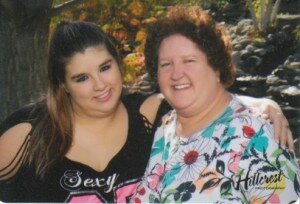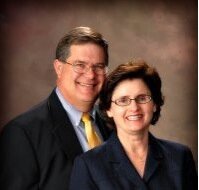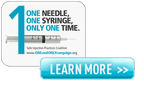Survivor Stories Blog
Collaborating to Make a Difference
Lauren Lollini spoke at the NAADDI Health Facility Diversion Conference in Cincinnati, OH on October 28th.

Once I was found to have Hepatitis C, while the walls appeared to be crumbling around me, I saw a light and chose to walk toward it. That light was the opportunity to share my story and reach out to others in an effort to make a difference. I did nothing more than relate the facts, share my emotion and help others understand the possibility of change.
My work with HONOReform became a very easy collaboration. Working with others who were as passionate as I to reach out and educate and explore the solutions to stopping outbreaks. HONOReform had made great strides forward in safeguarding the medical injection process.
Read more
“I know I have to forgive” – the Brader family story

Dwight and Mary Brader had a storybook life. They had a loving marriage, a young daughter who was the apple of their eye, and they lived on a farm in Nebraska. Mary worked nights as a nurse at a hospital thirty minutes away and Dwight had just finished training as an electrician in addition to keeping up with the farm chores.
And then their lives took a sudden, sharp turn. Dwight was diagnosed with nonHodgkins lymphoma. The local oncologist was optimistic that Dwight would be cured, even though his tumor was the size of a grapefruit.
Read more
Johnny’s House Party for Safe Injections
Johnny Robertson is a survivor of the 2008 North Carolina outbreak and serves as a member of the North Carolina One and Only Campaign. He recently hosted a house party to talk about injection safety.

We all know it takes a village to raise a child, but it takes a community to prevent an outbreak.
Johnny Robertson is trying to do just that – bring together the community to prevent an outbreak of disease due to unsafe injections. Along with other members of his community, he contracted Hepatitis C from reuse of syringes in a medical office in 2008.
Johnny invited vital community groups to his home on a lovely Carolina Sunday to talk about the outbreak and how to prevent others. He invited nursing faculty from the local community college and local healthcare providers. He invited members of two service organizations that he has been deeply involved in and were instrumental in shaping his response to the outbreak – the American Red Cross and Rotary International. The media was there to give a report to the larger community. Johnny proudly introduced all to two groups he is involved in that work diligently to prevent further outbreaks – HONOReform and the North Carolina One and Only Campaign.
The passion in the room was electric as the participants shared stories of tragedy due to unsafe injections. Everyone had a story to share or a question to ask.
The conversation turned to solutions. What can we do to prevent this tragedy from happening again? We talked about promoting the use of safety engineered injection devices that cannot be used more than once. We talked about the need for educating providers and empowering patients to talk to their providers about safe injection practices. And we talked about putting policies in place that shore up safe injection practices. As Dr Zack Moore of the North Carolina One and Only Campaign observed, “There is no one solution, we need to use all of these options.”
Johnny likes to quote Mark Twain: “There are basically two types of people. People who accomplish things, and people who claim to have accomplished things. The first group is less crowded.”
Many thanks to our new friends in North Carolina for their passionate support of injection safety. Together, we will help spare other patients, and other communities, from the devastation that occurs when basic injection safety rules are not followed.
We will continue to provide updates on our work in North Carolina. A special thanks to Johnny and Janet Robertson for hosting our fun gathering. And to everyone, for joining us.
“Service above Self”-Johnny Robertson’s story
Johnny Robertson is a survivor of the 2008 North Carolina outbreak and serves as a member of the North Carolina One and Only Campaign workgroup.

Johnny Robertson believes in helping others, even those he doesn’t know, whenever he can. That’s why he donated blood at the local Red Cross blood drives for years. But an unsafe injection has put an end to this generous gesture. Read more
Part 2: Barbara Burlingame Addresses Fellow Okies-and Outbreak Victims throughout the US
“I learned to live one day at a time, Barbara Burlingame writes in this poignant summary of her experience as an outbreak victim. She comments on the ongoing situation in Tulsa, and she encourages fellow patients to “please ask for help”.

The recent incident in Tulsa, in which as many as 7,000 dental patients may have been infected with bloodborne pathogens while receiving treatment from Dr. Scott Harrington, has brought a lot of thoughts and feelings back in to my life. Honestly some of these feelings have been buried deeply and it is a little painful to have them bubbling back to the surface, but it is also very therapeutic. I think daily of the people in Tulsa and the way that they have been blindsided by all of this information and these emotions. It is tough. Read more
“I wish I could wrap all of Tulsa up in one big bear hug”
Barbara Burlingame is a survivor of the 2000 Oklahoma outbreak, in which nearly 100 patients were infected with viral hepatitis through reuse of syringes at a pain clinic. Here is her story, in her own words.

I never thought this could happen to me. I never thought I—or anyone I know—would be infected with hepatitis C while
receiving healthcare.
Starting in March 2002, I was tired all the time. I felt lousy. I would come home from work for lunch and take a nap. I had to set an alarm, or I would fall asleep and sleep through the afternoon.
Read more
How can I help to prevent this from happening again? by Lauren Lollini

I applaud all who took part in the New Hampshire Hospital Association meeting September 22-24 which discussed ways to tighten up systems in an attempt to stop drug diversions which will ultimately help to prevent patient harm like the Hepatitis C outbreak which occurred in New Hampshire.
As a victim of a similar outbreak, I can attest to the fact that so often we just do not feel heard by the people who can make the most difference. Read more
HONOReform Presents Plan to Prevent Drug Diversion by Steve Langan

I am grateful I had the opportunity participate in the annual New Hampshire Hospital Association meeting, September 22-24 in Bretton Woods.
The staff of NHHA, led by Steve Ahnen, the president, along with the board of directors, is clearly committed to the prevention of drug diversion—in New Hampshire and beyond. Read more
How can a person go in for a routine surgery and come out with Hepatitis C? Lauren’s story
How can a person go in for a routine surgery and come out with Hepatitis C?
Perhaps this is a question you have never thought to ask, and before April of 2009 it was not even in the realm of curiosity for me either. But as I entered the urgent care for what I thought might be bronchitis, only to be asked by the medical assistant, “Do you know you are yellow?” my world was immediately turned upside down. A trip to the ER and several other doctor’s visits and blood tests later confirmed I had Hepatitis C.
Read more
Welcome to Survivor Stories Blog
99 Nebraskans were infected with Hepatitis C when a nurse reused syringes during chemotherapy administration in 2000.
34 Coloradans contracted Hepatitis C when a surgical technician injected herself with painkillers, then used the same syringe on patients.
Read more





